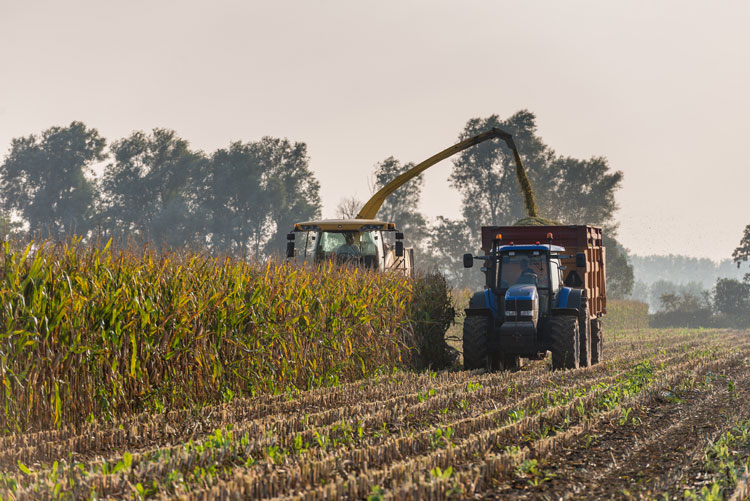
It’s no coincidence that National Farm Safety and Health Week, which is being celebrated all of this week, is held during one of the busiest times of the year for farmers. The buzz of forage harvesters, trucks, and tractors to chop, move, pack, plant, spread, and so much more means there are more chances something can go wrong or be overlooked. Marking this occasion reminds us to put safety top of mind during a time that includes a lot of equipment and probably little sleep.
Fall harvest and fieldwork also means farms need more hands on deck to complete all the jobs that need to be done in a timely manner, and this creates safety concerns when people are recruited to jobs they rarely or never do and may not be fully prepared to carry out. These “infrequent farmers,” as Penn State dairy extension educator Ginger Fenton writes, might be a spouse or partner, high school or college student, or a retired neighbor or parent.
Even if they have past experience farming, these people are less likely to be as familiar with the current daily farm operations, procedures, and tools. Stress or lack of instruction may worsen the situation and put the farm help and those around them in danger. Fatigue is also as much of a concern for these people who are taking on another thing for the season as it is for the farm’s regular employees.
To keep both frequent and infrequent farm workers safe, Fenton reminds owners to emphasize with all helpers that safety is important on your farm. Prepare ahead of time and set a good example for these workers by having directions and safety practices outlined and accessible, manuals or training materials available, and signs posted. Have any necessary personal protective equipment on hand, too.
Being prepared means that equipment is routinely serviced so wear and breakage won’t make it more difficult to operate. Any guards and shields should also be in place, she said.
When you have your crew identified, review operation procedures for any equipment, including how to stop or disengage, and make sure everyone knows who to call for help if needed. Don’t assume everyone will have the same abilities; have a conversation to know what your helpers are comfortable and not comfortable doing. Assign jobs that are manageable for the person and provide clear instructions if necessary. This not only keeps the team safer, but it also helps build the skillset and confidence of the individual.
Fenton reminds infrequent farmers to be alert and aware, review basic operation instructions for your equipment, and ask questions if you have them. You are playing a valuable role on the farm, and everyone wants it to be a good experience.
Although National Farm Safety and Health Week and fieldwork season will both come to an end, the need for good help on dairy farms will not. These considerations and many others that keep everyone safe are critical to ensure people want to and are able to work on our farms to provide nutritious food for our communities.

Katelyn Allen
Katelyn Allen joined the Hoard’s Dairyman team as the Publications Editor in August 2019 and is now an associate editor. Katelyn is a 2019 graduate of Virginia Tech, where she majored in dairy science and minored in communication. Katelyn grew up on her family’s registered Holstein dairy, Glen-Toctin Farm, in Jefferson, Md.








